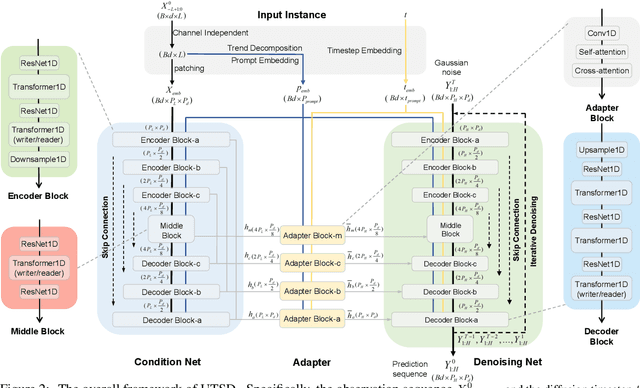UTSD: Unified Time Series Diffusion Model
Paper and Code
Dec 04, 2024



Transformer-based architectures have achieved unprecedented success in time series analysis. However, facing the challenge of across-domain modeling, existing studies utilize statistical prior as prompt engineering fails under the huge distribution shift among various domains. In this paper, a Unified Time Series Diffusion (UTSD) model is established for the first time to model the multi-domain probability distribution, utilizing the powerful probability distribution modeling ability of Diffusion. Unlike the autoregressive models that capture the conditional probabilities of the prediction horizon to the historical sequence, we use a diffusion denoising process to model the mixture distribution of the cross-domain data and generate the prediction sequence for the target domain directly utilizing conditional sampling. The proposed UTSD contains three pivotal designs: (1) The condition network captures the multi-scale fluctuation patterns from the observation sequence, which are utilized as context representations to guide the denoising network to generate the prediction sequence; (2) Adapter-based fine-tuning strategy, the multi-domain universal representation learned in the pretraining stage is utilized for downstream tasks in target domains; (3) The diffusion and denoising process on the actual sequence space, combined with the improved classifier free guidance as the conditional generation strategy, greatly improves the stability and accuracy of the downstream task. We conduct extensive experiments on mainstream benchmarks, and the pre-trained UTSD outperforms existing foundation models on all data domains, exhibiting superior zero-shot generalization ability. After training from scratch, UTSD achieves comparable performance against domain-specific proprietary models. The empirical results validate the potential of UTSD as a time series foundational model.
 Add to Chrome
Add to Chrome Add to Firefox
Add to Firefox Add to Edge
Add to Edge